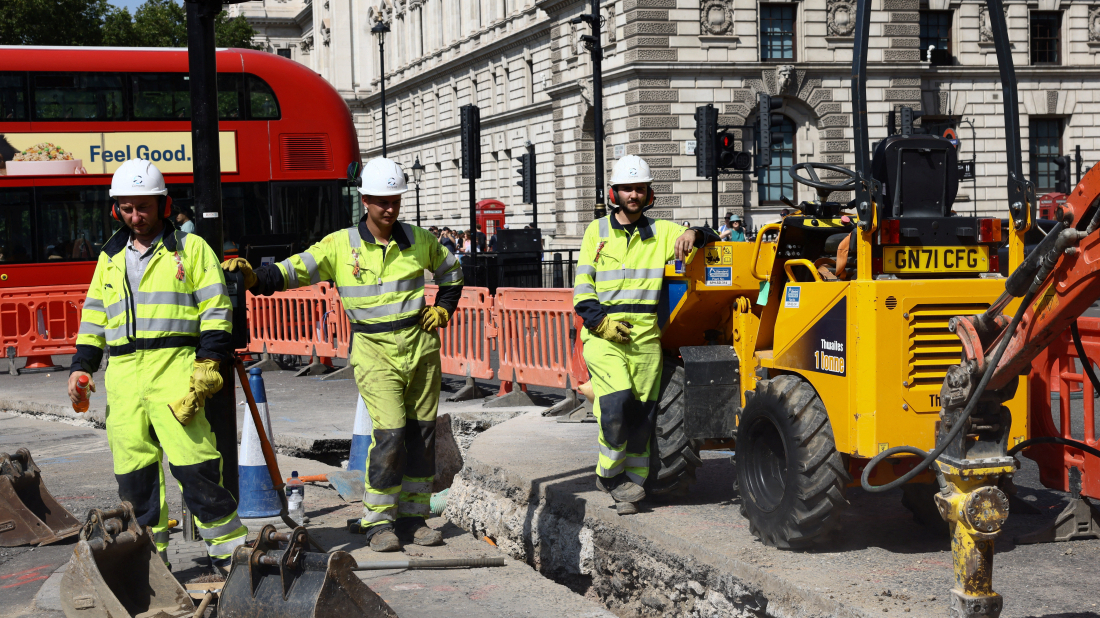Russian envoy to meet U.S. delegation in Geneva for economic talks
The meetings will reportedly focus on potential and proposed trade cooperation between Moscow and Washington. Presidential envoy will hold discussions...

Authorities and employers should protect the health of workers who are exposed to extreme heat, according to a report by the United Nations. The UN warns that high temperatures are endangering people worldwide with serious health risks.
The World Health Organization (WHO) and the World Meteorological Organization (WMO) are calling for better adaptation strategies to the extreme heat for millions of people.
Heatwaves are linked to heatstroke, dehydration, kidney dysfunction, and neurological disorders, according to the WHO and the WMO.
This is the first time the heat stress report has been updated for the first time since 1969, and highlights how climate change is driving more frequent and intense heatwaves, worsening health risks.
WHO Director for Environment, Climate Change and Health, Ruediger Krech said, "Billions of people are already exposed to dangerous heat at work. In agriculture, construction and other physically demanding sectors, we're seeing a clear rise in heat stroke, dehydration, and long-term kidney and cardiovascular damage due to dangerous working conditions."
"No one should have to risk kidney failure or collapse just to earn their living," added Krech.
"Protecting workers from heat is a matter of life and death. It's not just about temperature, it's about inequality. The poorest workers are on the front lines of the climate crisis."
The Intergovernmental Panel on Climate Change (IPCC) Sixth Assessment Report (2023) states that the global average temperature has already risen 1.1°C above pre-industrial levels, and extreme heat events are now twice as likely.
What type of worker
Manual workers in sectors such as agriculture, construction, and fisheries, as well as vulnerable groups including children and older adults in developing countries, face the highest risks.
Agricultural workers often start before sunrise and continue until sunset, particularly during planting or harvest seasons, which can mean 10–14 hour days, sometimes longer in extreme heat, according to International Labour Organization (ILO).
Standard construction shifts typically last 8-10 hours but can exceed 12 hours outdoors during peak hours, according to Occupational Safety and Health Administration (OSHA).
Fishers face long, physically demanding hours on reflective water surfaces, further increasing heat exposure, according to International Transport Workers' Federation (ITF).
Deaths and illnesses
A study published in 'The Lancet' (2021) noted that the heat exposure has contributed to more than 12,000 deaths annually among outdoor workers in India and Pakistan.
In Central America and Mexico, coffee and sugarcane plantations report heat-related illnesses during harvest season, with ILO noting several deaths annually due to heatstroke.
What should employers and governments do
The agencies urged the creation of heat action plans tailored to specific regions and industries, developed in consultation with workers, employers, unions, and public health experts.
“Protection of workers from extreme heat is not just a health imperative but an economic necessity,” said WMO Deputy Secretary-General Ko Barrett.
Legal working limits
Legal limits on working temperatures, proposed by unions in some countries, were cited as one possible approach, though measures would vary depending on local conditions.
For instance, in Spain, labour law sets maximum working temperatures for certain outdoor jobs and mandates regular breaks, ensuring employees are not exposed to unsafe heat levels, according to OSHA.
Similarly, in Japan, heatstroke prevention guidelines recommend shortening shifts when temperatures exceed 31°C wet-bulb globe temperature, particularly in outdoor and physically demanding roles, Japanese Ministry of Health, Labour and Welfare (MHLW) reports.
Consquences of heat stress
The ILO estimates that by 2030, 2% of global working hours per year could be lost due to extreme heat, equivalent to 80 million full-time jobs.
Europe heads into the Munich Security Conference, on Friday (13 February), amid deepening unease over U.S. policy, as President Donald Trump’s hard-line stance on defence, trade and territory fuels doubts about Washington’s long-term commitment to transatlantic security.
Türkiye and Greece signalled renewed political will to ease long-standing tensions during high-level talks in Ankara on Wednesday (11 February). Maritime borders, migration and trade topped the agenda as both leaders struck a cautiously optimistic tone.
Stalled U.S.–Iran talks and mounting regional tensions are exposing a growing strategic rift between Washington and Tel Aviv over how to confront Tehran, political analyst James M. Dorsey says, exposing stark differences in approach at a critical moment.
BMW is recalling a mid six figure number of vehicles worldwide after identifying a potential fire risk linked to the starter motor.
The suspect in a deadly school shooting in western Canada was an 18-year-old woman who allegedly killed her mother and stepbrother before attacking her former school. Investigators have not provided a motive for what is being described as one of the worst mass killings in Canada.
Measles cases across Europe and Central Asia fell sharply in 2025 compared to the previous year but health officials have warned that the risk of fresh outbreaks remains unless vaccination gaps are urgently addressed.
A Florida university has become a new hotspot in a widening U.S. measles outbreak, with health officials confirming multiple infections and hospitalisations.
The World Health Organization has added the Nipah virus to its list of the world’s top 10 priority diseases, alongside COVID-19 and the Zika virus, warning that its epidemic potential highlights the global risk posed by fast-spreading outbreaks.
Belgian authorities are examining suspected cases of infants falling ill after consuming recalled Nestle baby formula, amid warnings that confirmed infections may be underestimated due to limited testing requirements.
Two Nipah infections involving health workers in India have triggered heightened screening across Southeast Asia as authorities move to prevent the high fatality virus from spreading beyond the country.
You can download the AnewZ application from Play Store and the App Store.

What is your opinion on this topic?
Leave the first comment